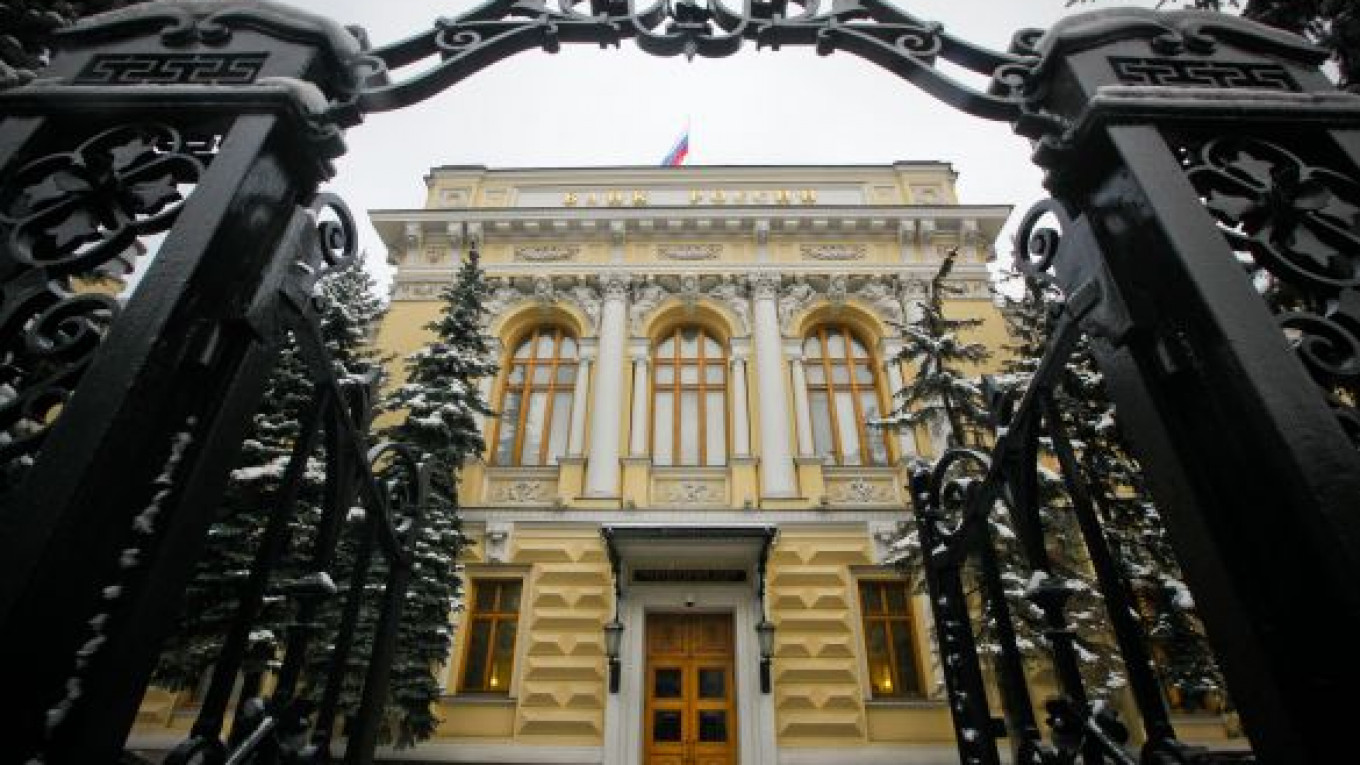A capital outflow of up to $10 billion every three months would be an acceptable level under current macroeconomic conditions, a leading figure at the Central Bank said.
Russia saw $56.8 billion leave the country in 2012, stoking fears that the Kremlin is struggling to control capital flight and failing to make any significant improvements to the local business climate.
But such interpretations are wrong, said Alexei Ulyukayev, the first deputy chairman of the Central Bank. Russia's current account balance and its financial and economic structures mean a capital outflow of no more than $10 billion every quarter is to expected, he said Wednesday at the Gaidar Forum, an annual economic conference.
The Central Bank said last week that $9.4 billion had been sucked out of Russia in the fourth quarter, $7.6 billion in the third quarter, $6.4 billion in the second quarter and $33.3 billion in the first quarter.
Others said higher quarterly outflows would be unremarkable in today's conditions.
"Even $20 billion" is acceptable, MDM bank chairman Oleg Vyugin told The Moscow Times. "If the current account balance is positive and the Central Bank isn't buying currency, then it is inevitable that there will be capital outflow."
Excluding a period between late 2011 and early 2012, capital outflow has shrunk steadily since the 2008 crisis, said Ulyukayev.
Many analysts linked that blip to political instability in the run-up to last year's presidential elections, but Ulyukayev said international problems, including the downgrade of the United States' credit rating and the European sovereign debt crisis, were to blame.
The methods used to calculate capital flows were criticized last month in a report by the state-controlled Russia Direct Investment Fund, which argued that the real figures were much lower than those given by the Central Bank.
About $40 billion left the country in 2011, rather than the official capital outflow figure of $80.4 billion, the report said.
Ulyukayev did directly mention the criticism. But Vyugin, a former head of the Federal Service for Financial Markets, said the Central Bank's figures were objective and the methodology was fair.
"The main thing is that the methodology shouldn't change the dynamic," he added.
On Wednesday, Ulyukayev also warned that the world was on the brink of a currency war after Japan's recent moves to weaken the yen, giving a boost to its exports.
"We stand on the threshold of, I think, very confrontational actions in what could be called, with excessive emotion, currency wars," Ulyukayev said.
Other central banks were already pursuing this policy, he said.
"And this is a road not to unity but to separation, segregation and a division into zones of influence," he added.
The ministry stuck by its forecast for full-year contraction of just 2.2 percent, suggesting things could improve before too long. That optimism was picked up by Shuvalov.
Russia could change its interest rates as early as next month, Ulyukayev said Wednesday, Reuters reported.
A statement by the Central Bank on Tuesday, after it decided not to change rates at its January meeting, was "a signal for market participants that we are leaving ourselves the possibility of making any decision as early as the next meeting," Ulyukayev said.
Related articles:
A Message from The Moscow Times:
Dear readers,
We are facing unprecedented challenges. Russia's Prosecutor General's Office has designated The Moscow Times as an "undesirable" organization, criminalizing our work and putting our staff at risk of prosecution. This follows our earlier unjust labeling as a "foreign agent."
These actions are direct attempts to silence independent journalism in Russia. The authorities claim our work "discredits the decisions of the Russian leadership." We see things differently: we strive to provide accurate, unbiased reporting on Russia.
We, the journalists of The Moscow Times, refuse to be silenced. But to continue our work, we need your help.
Your support, no matter how small, makes a world of difference. If you can, please support us monthly starting from just $2. It's quick to set up, and every contribution makes a significant impact.
By supporting The Moscow Times, you're defending open, independent journalism in the face of repression. Thank you for standing with us.
Remind me later.







